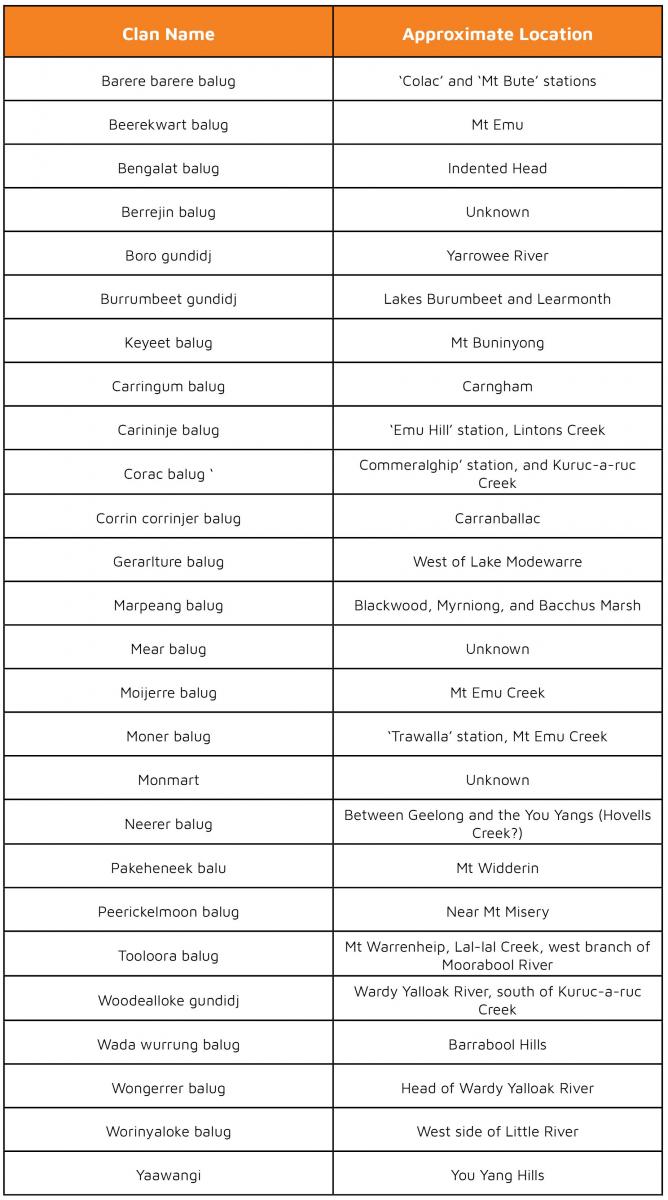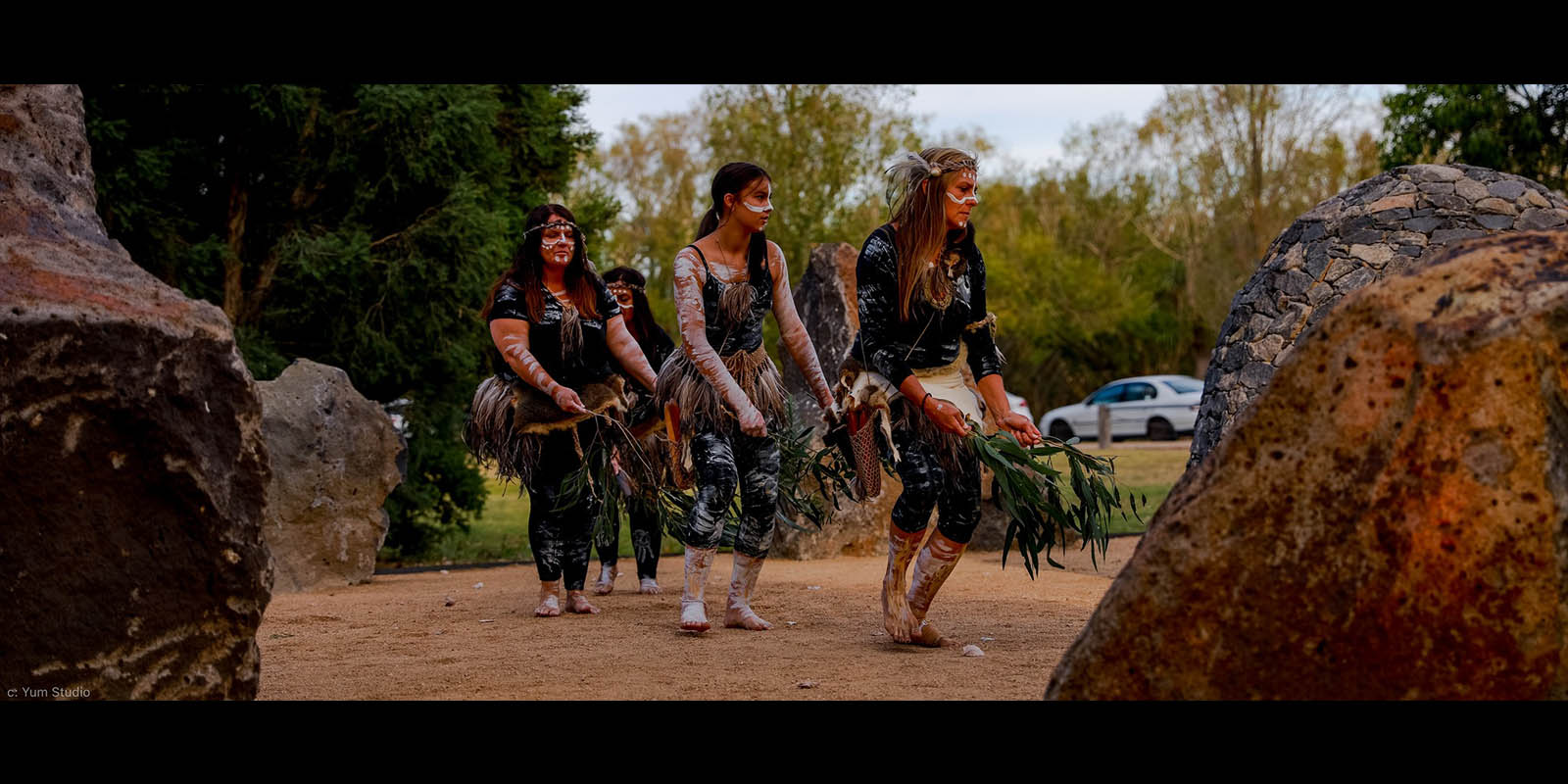The Wadawurrung people are one of the fives mobs that make up the Kulin Nation.
Clans
Today, the Wadawurrung are the seven family groups who are the sole descendants of John Robinson, our apical ancestor. You can read more about our history here. Before colonisation however, our people was made up of around 25 clan groups.



Image source: Wadawurrung Traditional Owners Aboriginal Corporation Facebook Page
Farming & Agriculture
Wadawurrung people use the land around us to survive. We hunt the animals and collect bush food such as berries from the plants and trees around us. We are sustainable in what we do ensuring that we never take more then what we need and what the land can spare, we do not waste anything.
Wadawurrung people use the land around us to survive. We hunt the animals and collect bush food such as berries from the plants and trees around us. We are sustainable in what we do ensuring that we never take more then what we need and what the land can spare, we do not waste anything.
We lived mostly along the waterways as they were like our supermarkets and chemists. The waterways were home to an abundance of sea animals and birds that we could eat as well as plants like cumbungi and water ribbon that grew nearby. The further into the hills you went the less resources there were which is why we spent the majority of our time living by the water.
While some foods such as shellfish and marine snails were eaten raw many of our foods such as fish and birds were cooked. There were a few ways we cooked our food, we could place it directly onto the hot coals of a fire, we also used pits that were lined with hot stones and sometimes we wrapped our meal in green leaves or placed it inside a woven basket made from grasses which we then place onto the coals.
Nearby our campsites we had middens. Middens can be found next to rivers, lakes and bays or in the sand dunes by the ocean and are made up of the discarded food wastes from many meals in the one location.
If we fished too much in one river or creek and we could see that resources were disappearing or dropping, we would limit the amount of activity that could be done in that area so that the land and the animals could be given time to recover. This ensured that we could remain in areas over a long period of time as we never ran out of resources.
Ceremony & Gatherings
Ceremony was a big part of our lives and we would conduct ceremonies with neighbouring mobs such as Djab Wurrung, Dauwurd Wurrung and other mobs of the Kulin Nation.
We would gather at Mirraewuae Swamp, east of the Grampians, for ceremony with the Djab Wurrung, Dauwurd Wurrung and Girai Wurrung. We also gathered at Lake Bolac with the local Djab Wurrung clans and Girai Wurrung for the annual early autumn eel migration. Ceremony was great and could often see hundreds of people celebrating and sharing meals.
After Colonisation
Wadawurrung people are resilient, and thanks to our Ancestors never giving up the fight we were able to survive invasion and colonisation.
Many of our people were moved onto missions and reserves as a result of colonial legislation. One of the main missions we were placed in was Coranderrk Aboriginal Station on Wurundjeri country. To learn more about reserve systems you can check out our history timeline entry Creation of a Reserve System.
In more modern times our community leaders and Elders have been working hard to bring back our traditions and ceremonies to for us to take part in and we continue to stay strong and proud of who we are!
Aunty Marlene Gilson gives an insight into Wadawurrung's post-colonial experience through her artwork piece, 'Ballarat, My Country'.
Sources
The sources used to create the content on this page can be found on Wadawurrung Further Reading.
